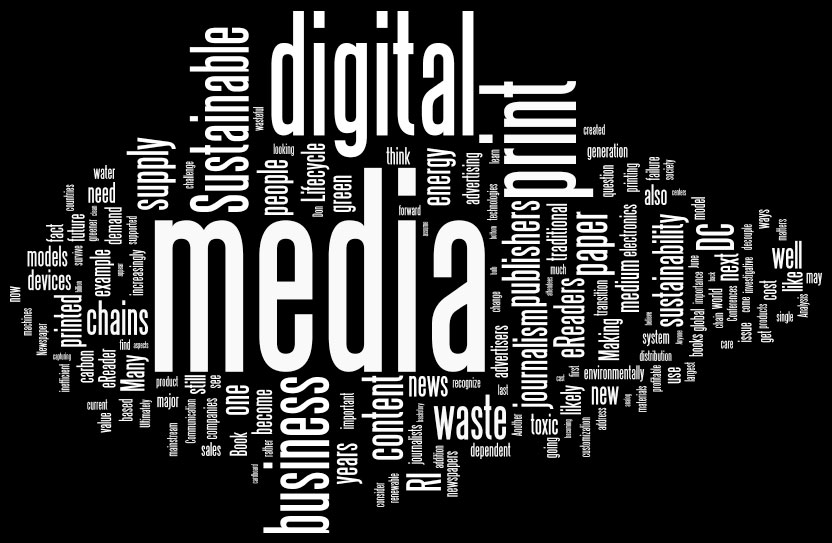Fiona Suwana
STIKOM The London School of Public Relation – Jakarta
[email protected] / [email protected]
ABSTRACT
The falls of Suharto’s regime sparked significant growth of online media industries and users, occurring alongside the development of democracy and press freedom in Indonesia. The role of freedom of speech in the media is a vitally important element in the development of democracy. The internet as a new form of the digital media has the possibility to promote greater public participation in political life.
Indonesia has one of the largest internet users in the world. According to detikinet, the number of internet users in Indonesia reached 63 million recorded by APJII until the end of 2012 (Noor II, 2012). Nowadays, amount of information on the internet is increasing and prone to become overload. Society who lives in information ages need to concern of the quality and high-value information from online media that have relevance to their lives. Another research of Yahoo and TNS, Net Index – Indonesia showed the percentage of internet usage increased steadily from 2009 to 2012, while the newspaper gradually declined in that period of time. Furthermore, in 2012, the internet has the second-highest media penetration in indonesia, with 57%, after television at 100%, and has been left the newspaper at 55%, also radio at 40%(eMarketer, 2012). Therefore, popularity of the Internet has grown in Indonesia and made the Internet accessibility are easier and improve in society. Yet, the impact of democracy is full participation in culture requires not just consuming, but also creating and sharing useful information through online, so therefore new media literacy as a life skills that are necessary.
The preliminary research will explore measurement of new media literacy by Indonesia’s young people (17-22 years old) and a survey method will be suitable for this purpose, moreover, the research will focus on the question of what are the capacities of Indonesia’s young people to assess online information in Internet. To what extent, and to what degree do Indonesia’s young people access, analyze, evaluate, and use the content of online media effectively? So that, initially, the research will conduct to young people at Jakarta as the highest city of internet penetration. These young people are expected in regard to find out the users’ capacity to assess online information. The questions will include the measurement of competencies in digital and media literacy (Hobbs, 2009), such as to access (making responsible choices: search, use), to analyze (identifying: author, source, motive, perspective), to evaluate (comprehending: credibility, quality, veracity of the content), to create (express ideas: making online media content, comment). Furthermore, the measurement of ability to reflection (conducting: social responsibility and ethical principles), and to take action (participating: contribute with online community network, online activism, political process).
The result of this preliminary research is expected to expand further research that measure of new media literacy in several cities with high penetration of online media in Indonesia are areas (Reza, 2011), e.g. Jabodetabek, Surabaya, Bandung, Yogyakarta, Semarang, Surabaya, Medan, Makassar. The development concept of new media literacy in Indonesia will provide great implication to civil society, media industry, Indonesia press council, and government. Furthermore, new media literacy can enhance the right to online free of expression, so that become a tools to empower users of democracy society in Indonesia.
Bibliography
eMarketer. 2012. In Indonesia’s Cities, Mobile Boosts Internet to No. 2 Media Spot. Available from http://www.emarketer.com/Article/Indonesias-Cities-Mobile-Boosts-Internet-No-2-Media-Spot/1009637
Hobbs, Renne. 2010. Digital and Media Literacy: A Plan of Action. Washington: The Aspen Institute. Available from http://www.knightcomm.org/wp-content/uploads/2010/12/Digital_and_Media_Literacy_A_Plan_of_Action.pdf
Noor II, Achmad Rouzni .2012. Pengguna Internet Indonesia Bisa Tembus 82 Juta. Available from http://inet.detik.com/read/2012/12/12/153755/2116695/398/2013-pengguna-internet-ri-bisa-tembus-82-juta?i991103105
Reza, Wahyudi. 2011. Naik 13 Juta, Pengguna Internet Indonesia 55 Juta Orang. Available from http://tekno.kompas.com/read/2011/10/28/16534635/Naik.13.Juta..Pengguna.Internet.Indonesia.55.Juta.Orang
*This paper was presented and published in The 22nd Annual AMIC Conference at Melia Purosani, Yogyakarta, July 4-7, 2013

